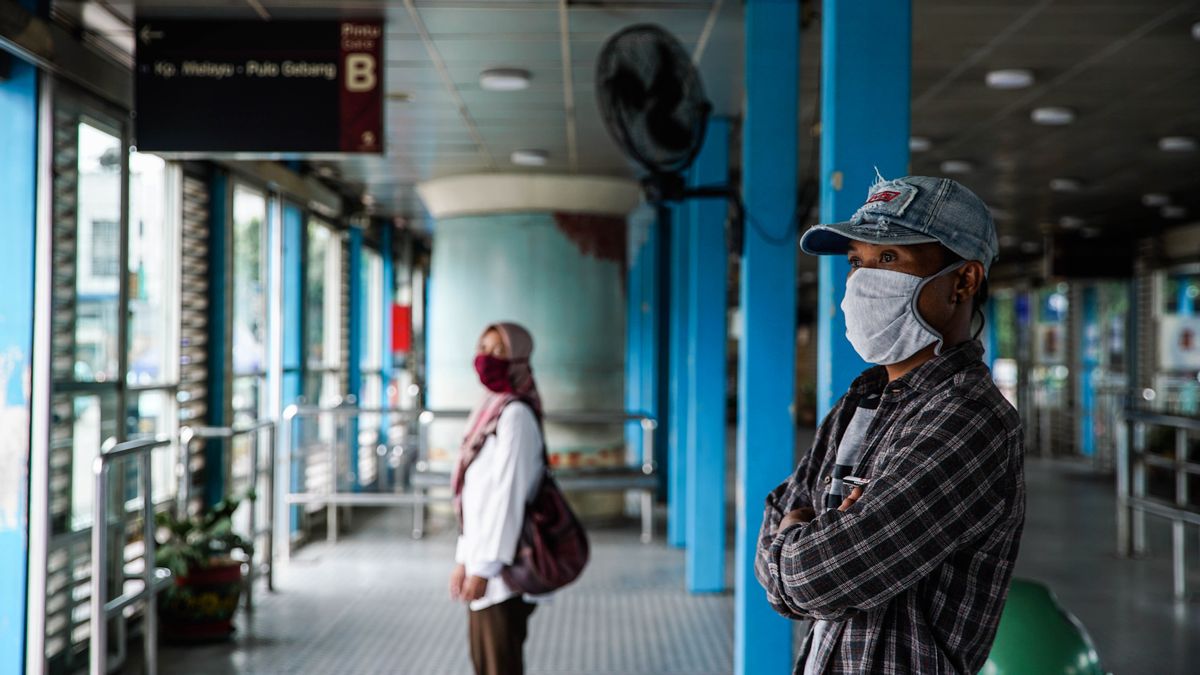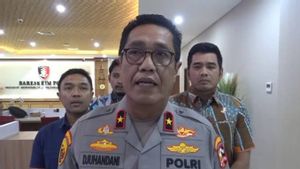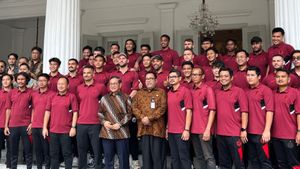JAKARTA - The central government has indeed not issued a ban for people who want to go home during Eid Al-Fitr 2020 in the midst of the COVID-19 pandemic. It's just that recently, various appeals and regulations were issued again following restrictions on the movement of people back to their hometowns.
One example is the question of limiting the number of passengers in private vehicles carried out by the National Police. With a commitment to maintain a distance during homecoming in order to prevent the transmission of COVID-19, later, in one private vehicle it is not allowed to carry many passengers.
Head of Traffic Police of the National Police, Inspector General Istiono, said that in implementing this rule, only two people can be boarded for small cars or sedans. Meanwhile, minibus-type cars are limited to a maximum of three people. In fact, for two-wheeled vehicles only one person.
"The vehicle restriction is expected to be 50 percent of the existing capacity, as a commitment to maintain distance," said Istiono, Monday, April 6.
Then, for surveillance, said Istiono, police personnel will be stationed at all toll gates and several other points. So, if there are travelers who do not apply the rules of guarding distance when going home will be immediately punished.
The action that is carried out is not by numbering. Instead, those who violate will not be allowed to continue their journey or be asked to return to their respective homes.
"So those who are found to be over capacity, we will definitely ask to divert (go home)," said Istiono.
The application of this rule is also said to be in accordance with government policies that ask the public to always maintain a distance or physical distancing. So, later it can prevent the spread of COVID-19 to other areas.
However, continued Istiono, based on existing data, the current level of public awareness is quite high. Only about 15 percent of the people still choose to go home.
"For now (the people) who want to go home are around 15 percent, it is indeed small. This is part of our public awareness that is so high about health," he said.
Public Policy Analysis, Trubus Rahadiansyah spoke about the application of these regulations. According to him, implementation in the field will face obstacles. Because, there is no clarity regarding the sanctions that will ensnare violations.
"Of course it will not be effective, its implementation is likely to be problematic and it can even lead to conflicts when there is action," said Trubus.
With the existence of this regulation, said Trubus, it increasingly shows that the central government's decision is not firm when issuing a decision regarding not prohibiting people from going home. This is evidenced by the emergence of various regulations from other agencies.
Then, the decisions of the central government were said as if the direction was not clear. For this reason, it is advisable to make a decision to prohibit the community from going home if the goal is to prevent the increasingly widespread spread of COVID-19.
"The central government does not seem to want to lose its authority, but the regulations or decisions regarding the homecoming that are issued are unclear. Want to ban but not firm," said Trubus.
The English, Chinese, Japanese, Arabic, and French versions are automatically generated by the AI. So there may still be inaccuracies in translating, please always see Indonesian as our main language. (system supported by DigitalSiber.id)












